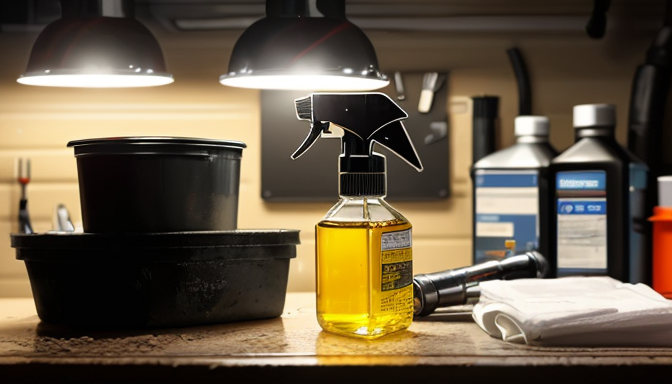When it comes to keeping your vehicle in top shape, car maintenance myths can lead you down the wrong path. Many drivers are misled by outdated information or marketing gimmicks that promise better performance or longevity. So, what do you really need to know? Let’s break it down!
First off, understanding the basics of car maintenance is crucial. Regular maintenance can save you a lot of money in the long run, but falling for myths can have the opposite effect. For instance, some people think that if they use premium fuel, their car will run like a sports car. In reality, most vehicles are designed to run on regular fuel, and using premium won’t give you any extra horsepower. Instead, it might just lighten your wallet!
Another common myth is the infamous 3,000-mile oil change rule. While this was once a golden standard, modern engines have evolved significantly. Depending on your vehicle’s make and model, you might not need to change your oil until 5,000 or even 7,500 miles. Always check your owner’s manual for the manufacturer’s recommendations, as they know your car best!
To keep your ride running smoothly, focus on these essential car maintenance tips:
- Regularly check tire pressure and tread depth.
- Keep an eye on fluid levels, including coolant and brake fluid.
- Inspect your brakes and replace them as needed.
By debunking these myths and arming yourself with the right information, you can ensure that your car remains safe and efficient. Remember, knowledge is power when it comes to car care!
Myth 1: Premium Fuel is Always Better
Many car owners have been led to believe that using premium fuel will automatically enhance their vehicle’s performance. But let’s pump the brakes for a second! The truth is, this isn’t always the case. Most vehicles are designed to run perfectly fine on regular unleaded gasoline. In fact, using premium fuel in a car that doesn’t require it is like using a high-octane rocket fuel in a family sedan—it simply isn’t necessary.
Understanding the specific fuel requirements of your vehicle can save you a significant amount of money. For example, if your car’s manual specifies regular fuel, using premium won’t give you any extra horsepower or fuel efficiency. Instead, you might just be pouring your hard-earned cash down the drain!
So, how can you determine what fuel is best for your vehicle? Here are a few tips:
- Check Your Owner’s Manual: This is your go-to source for understanding your car’s fuel needs.
- Consider Your Driving Habits: If you drive aggressively or tow heavy loads, you might benefit from premium fuel. However, this is not the case for everyone.
- Consult a Mechanic: If in doubt, a quick chat with a professional can clarify any confusion regarding fuel types.
In conclusion, while premium fuel may seem like a magic potion for your engine, it’s essential to do your homework. Choose the fuel that matches your car’s requirements and keep your wallet happy!

Myth 2: You Should Change Oil Every 3,000 Miles
Ah, the infamous 3,000-mile oil change rule. It’s been drilled into our heads for decades, but is it really the golden standard? Not anymore! Many modern vehicles are engineered with advanced technology that allows for much longer intervals between oil changes. In fact, some cars can go 5,000 to 10,000 miles before needing an oil change, depending on the type of oil used and driving conditions.
So, what factors should you consider to determine when to change your oil? Here are a few key points:
- Oil Type: Synthetic oils can last significantly longer than conventional oils.
- Driving Conditions: Frequent short trips, stop-and-go traffic, or extreme temperatures can require more frequent changes.
- Manufacturer Recommendations: Always check your owner’s manual for the manufacturer’s guidelines.
Instead of sticking to the outdated 3,000-mile rule, consider using an oil life monitoring system if your vehicle has one. This handy feature tracks your driving habits and lets you know when it’s time for an oil change. Ignoring these advancements could lead to unnecessary expenses and even engine damage.
In summary, while regular oil changes are crucial for maintaining your vehicle’s health, the 3,000-mile myth is just that—a myth. Stay informed, listen to your vehicle, and you’ll keep your engine running smoothly without breaking the bank!
Frequently Asked Questions
- Is premium fuel really necessary for my car?
Nope! Unless your car specifically requires it, using premium fuel won’t necessarily boost your performance. Most cars run just fine on regular fuel, so why pay more?
- How often should I really change my oil?
Forget the old 3,000-mile rule! Many modern engines can go much longer between oil changes. Check your owner’s manual for the manufacturer’s recommendations, and consider your driving habits.
- What other car maintenance myths should I be aware of?
There are plenty! For example, some folks think that you need to warm up your car for ages in winter, but modern engines don’t require that. Always stay informed to avoid unnecessary costs!
- Can I skip regular maintenance if my car seems fine?
Not a good idea! Just because your car is running well doesn’t mean it doesn’t need maintenance. Regular check-ups can prevent bigger, more costly issues down the road.